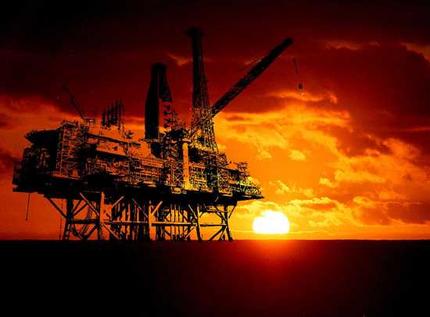The Mozambican coastline and accompanying beaches, appearing like pictures from a honeymoon advertisement, still attract tourists from all over the globe. But these coastlines are no longer just the interest of fishermen, divers, and lovers.
An energy boom is underway in Mozambique. If the recent discoveries of natural gas are confirmed, Mozambique will rank fourth in the world for natural-gas reserves behind Russia, Iran, and Qatar.
However, while natural gas has put Mozambique on the energy map, the hope of oil discoveries is driving the interest of local Mozambicans. Malaysia’s Petronas spudded new wells in 2012 joining the U.S.’s Anadarko Petroleum and Italy’s Eni. Norway’s Statoil will join the ‘rat race’ this year in the search for black gold.
In Maputo, the excitement is everywhere. The oil & gas industry prompts dreams of employment growth and opportunity. Ricardo tells Ventures Africa how he likes working in the oil industry and constantly receives inquiries from friends, friends of friends, and strangers about how to get into the oil industry. “Bankers becoming operations assistants,” says Ricardo. But these are not your New York investment bankers and not your Houston oil operation assistants.
Oil and gas are bringing higher paying jobs that are not relatively not available in most other sectors. The positive sentiments are not universal.
Another local Mozambican talks about how there are some jobs for Mozambicans but it is not the exact story outsiders see in newspapers: “When locals come looking for jobs, they are hired often as the equivalent of office assistants, while the foreigners are given the higher paying jobs with more opportunities.”
He continues: “At the same time, there is still a transfer of knowledge capital that must happen along with a growth of skills in the country for more Mozambicans to assume bigger roles.” The prospect of a higher salary cannot be understated in a country where the cost of everything appears to be rising with the arrival of more foreigners generally as a result of the energy boom. Sitting at one of Mozambique’s more famous restaurants – Manjar dos Deuses on Avenida Julius Nyerere, it is not uncommon to hear French, English, Dutch and Portuguese and see patrons pay dinner bills surpassing $75.
The government’s role
The Mozambican government has been more open about its plans with the development of oil and gas, as compared to other countries in Africa. There are those critics who cannot help but wonder about the tax deals struck with oil and gas giants. Furthermore, such tax deals, or tax breaks, begs questions from locals about the fiscal distribution that will follow.
Lessons for Mozambique exist at home and abroad. The coal boom in the Tete Province brought protests after disgruntled locals accused Brazilian mining giant Vale of resettling them in unsatisfactory areas with inadequate and poorly finished homes. The Mozambican government efficiently stepped in and reasserted itself as an active player going forward on resettlements.
This active participation can also be seen in the government’s assertive presence in the media about its economic and social development plan. Tete is not an anomaly as far as location. Much of the offshore drilling occurs in isolated areas with poor soil, barely sufficient for subsistence farming, and in regions where many inhabitants can barely find employment.
Accordingly, the government is planning to spend more than US$60billion over next ten years to turn these reserves into production and create jobs. Such announcements and follow through by this government has rightly earned it praise in the early goings.
Too much of a good thing
Still, the Mozambican government must tread lightly. In discussing what oil discoveries in Ghana, one Ghanaian Minister of Parliament basically highlighted how oil and gas discoveries can become a burden on African governments and economies if not handled correctly: “When we found oil in Ghana, we were ecstatic until we saw that entrepreneurship and new business, which may have accounted for 90 percent of GDP growth in the previous year was only about 10 to 20 percent of GDP growth, was replaced by oil as the main part of GDP growth.”
He continued: “What this meant was that we were spending most of our capital on oil and gas to get the stuff out of the ground and the biggest creator of jobs in our economy [new business] was decreasing.” Spending on oil and gas for all their great potential can be costly and draining to an economy. Not everyone can work in the energy sector thus other sectors will also be clamoring for attention.
The message does not fall on death ears. One man, an insider to FRELIMO, tells Ventures Africa, “this government sees what has happened in other parts of Africa and will use those experiences to create the best experience and growth for Mozambique. That is simply all the government can do.”
Mozambicans see the story from many different angles. Are we Angola in the making? South Africa? Tanzania? “Wait we are Mozambique and have come very far being Mozambican, I don’t expect that trend to change,” says Martine.








